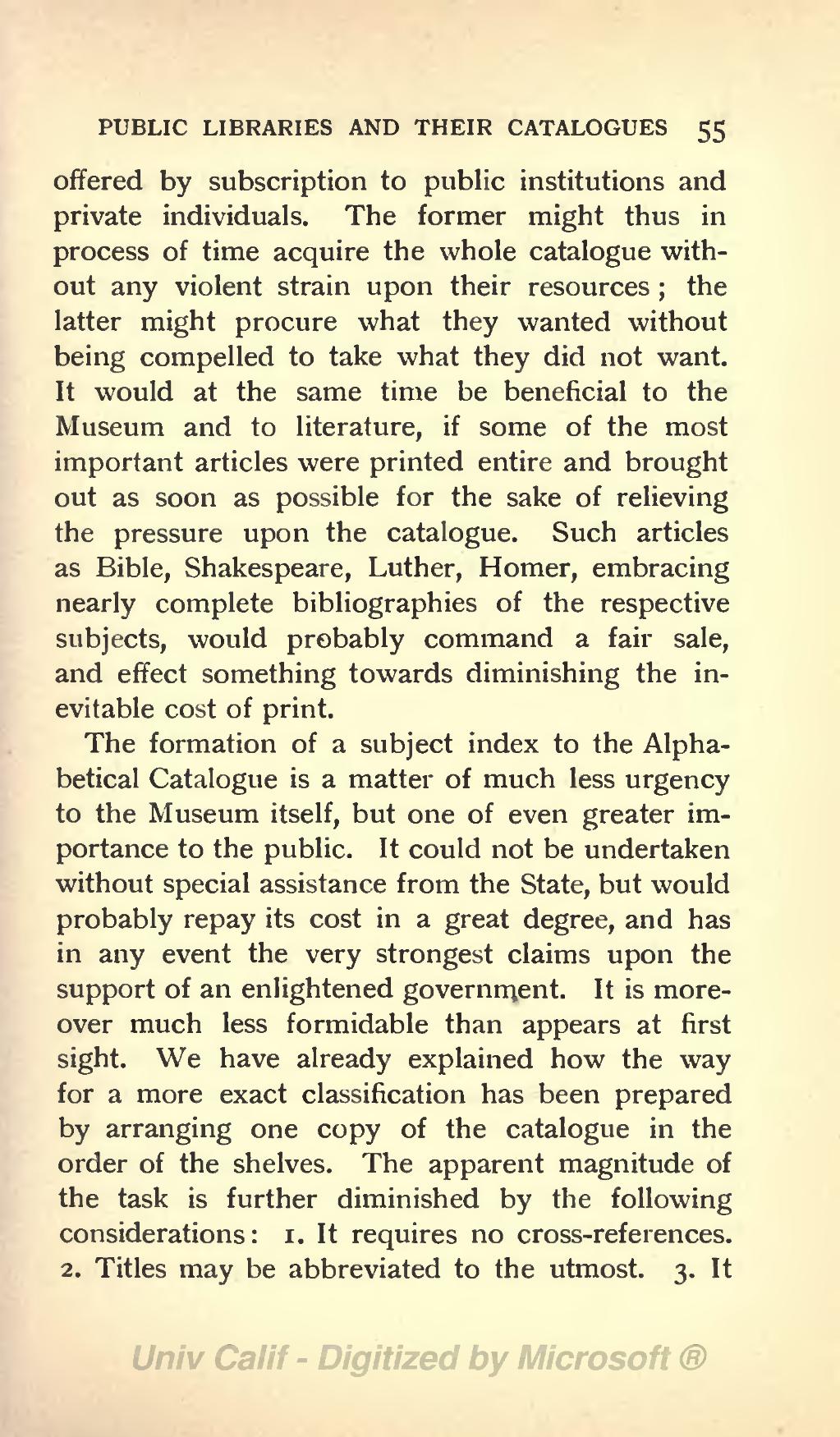offered by subscription to public institutions and private individuals. The former might thus in process of time acquire the whole catalogue without any violent strain upon their resources; the latter might procure what they wanted without being compelled to take what they did not want. It would at the same time be beneficial to the Museum and to literature, if some of the most important articles were printed entire and brought out as soon as possible for the sake of relieving the pressure upon the catalogue. Such articles as Bible, Shakespeare, Luther, Homer, embracing nearly complete bibliographies of the respective subjects, would probably command a fair sale, and effect something towards diminishing the inevitable cost of print.
The formation of a subject index to the Alphabetical Catalogue is a matter of much less urgency to the Museum itself, but one of even greater importance to the public. It could not be undertaken without special assistance from the State, but would probably repay its cost in a great degree, and has in any event the very strongest claims upon the support of an enlightened government. It is moreover much less formidable than appears at first sight. We have already explained how the way for a more exact classification has been prepared by arranging one copy of the catalogue in the order of the shelves. The apparent magnitude of the task is further diminished by the following considerations: 1. It requires no cross-references. 2. Titles may be abbreviated to the utmost. 3. It
